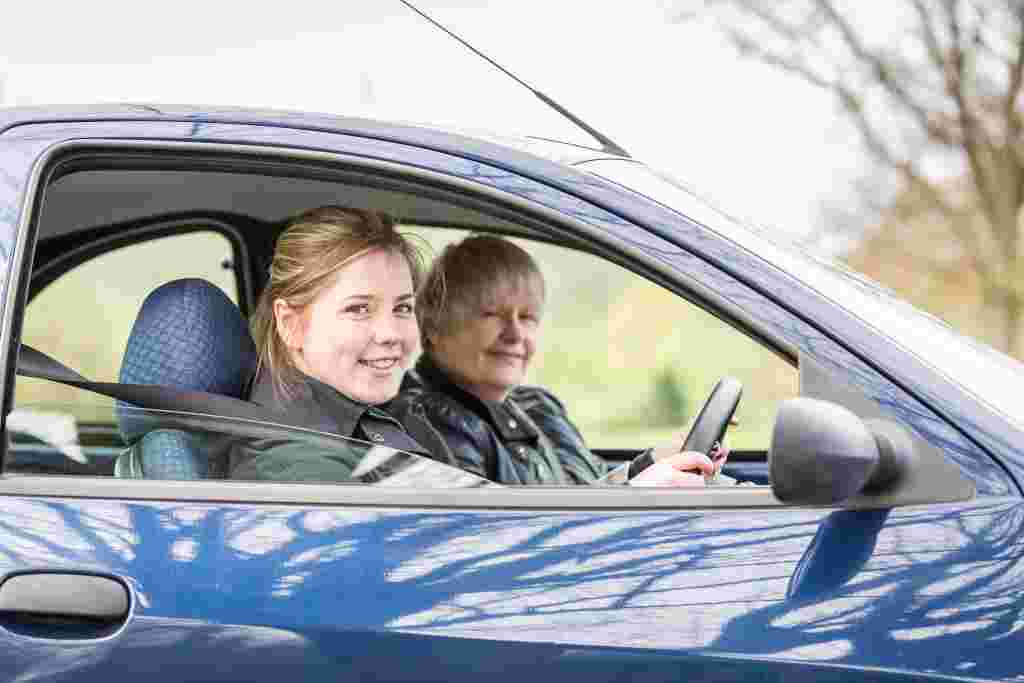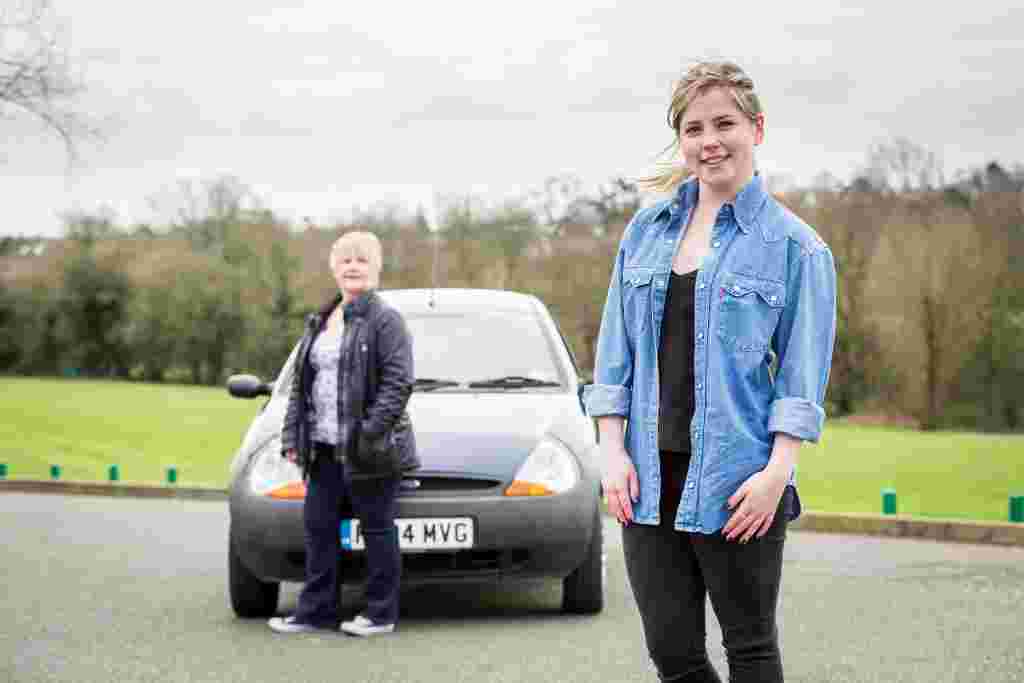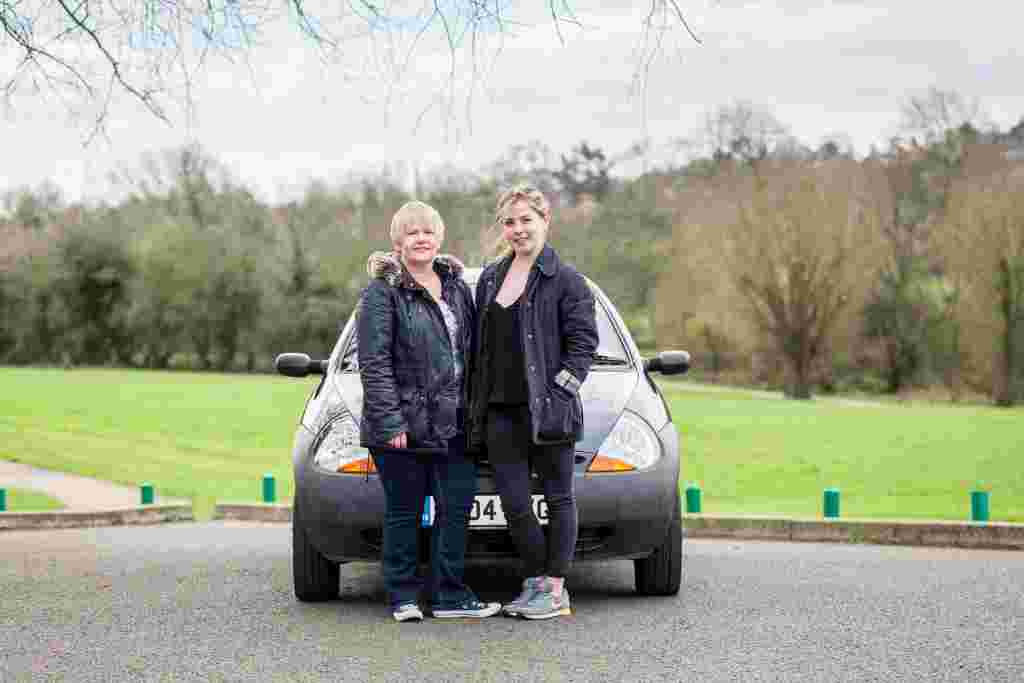However, parents could increase one-on-one time by a huge 70% if they take teens out to practise driving
- 66% of British parents consider watching TV as spending quality time with their children
- Just 3% of the average British parent’s entire week is spent on one-on-one time with their child
- Young driver insurer ingenie found that parents can increase time spent with 17 – 25 year olds by a massive 70% by helping them practise driving

A new study has revealed that a shocking 66% of British parents think that watching television with their child counts as spending quality time with them. Of those who responded, the report shows that parents in Wolverhampton (78%), Sheffield (77%) and Southampton (77%) top the scale for TV time at over 75%. Only 13% of parents claimed they spent time doing activities with their children that didn’t fall into an average daily routine.
The statistics were highlighted as young driver insurer ingenie investigated parents’ attitudes to taking part in driving practice with their 17 – 25 year olds; discovering over half (54%) of British parents don’t bother taking their children out for extra practice while they are learning to drive. With the average British parent spending just three to five hours – just 3% of their entire week – with their child, ingenie is encouraging parents to increase the time they spend with their teenagers by taking them out for supervised driving practice. The report showed that by boosting hours on the road, parent-child one-on-one time increased by a mammoth 70%.

Despite the government’s advice that additional hours on the road before young drivers pass their driving test has a massive impact on their future road safety, parents across the country are using a variety of excuses to avoid taking their 17 – 25 year olds for extra practice. The top cop-outs are claims of fatigue, closely followed by bad weather and then blaming heavy traffic on the road. Over half of parents in Aberystwyth plea tiredness or illness to bail on the driving time while a third of parents in Belfast blame the weather.
The government recommends a minimum of 22 hours of practice time (on top of 47 hours of driving lessons with an instructor) to prepare young drivers for differing road conditions and handling other cars. With this in mind, ingenie has released a guide to how parents can best help their children practise driving and how to remove the likely tension. Find expert advice here ingenie.com/fourth-gear.
Richard King, ingenie CEO, says, “At the age of 17, young people are learning key values and lifelong skills that are extremely relevant when learning to drive. How they learn will define their road safety for the next forty years and it’s very important that parents contribute. Of course there’s the risk of some squabbling when parent and teenager start driving practice – but approached in the right way, this time can be hugely rewarding. For your child’s future safety, but also as quality time together away from the usual daily routine.”
As well as having an impact on road safety, the findings also showed that practice time in the car strengthened the family bond. Nearly half of parents (48%) who have helped children practise their driving skills stated that they felt closer to them following the one-on-one time spent together, with one third (33%) saying that they felt they had made a valuable contribution to their learning.
The report marks the fourth of the five gears in ingenie’s Parent Manifesto; a series of activities that aims to educate parents on how to get more involved when their child is learning to drive, in order to complement the learning process and promote safer driving among young people. The manifesto is made up of five stages – with each stage aiming to educate parents on another way they can help their child drive safely and save money.

For more information about how to help a young driver get on the road safely – visit: https://www.ingenie.com/parent-manifesto
About ingenie:
ingenie is an insurer for young drivers and uses telematics technology to reward safe driving by lowering premiums.
ingenie’s black box builds a picture of a customer’s individual driving style, awareness and safety on the road. As well as rewarding those who drive well with cheaper insurance premiums, the company also gives regular feedback and extra support for those who need it.
In 2013, ingenie was awarded the prestigious Prince Michael International Road Safety Award in recognition of its campaigning on safer driving. In 2014, the company was named best Insurance Start-up at the British Insurance Awards and Broker Innovation of the Year at the Insurance Times Awards. In 2015, ingenie won several awards including Telematics Champion of the Year at the Insurance Times Tech Awards.
The ingenie system
ingenie exclusively insures drivers aged 17 to 25, who are often priced out of insurance elsewhere. It uses a telematics black box fitted to the car and a suite of 200+ proprietary algorithms to paint a clear picture of a young person’s driver DNA, particularly their attitude to risk.
Policyholders receive a score based on their recent driving via the ingenie smartphone app, accompanied by regular Twitter-style messages with feedback and tips. Risky driving triggers warning messages, which allows ingenie’s Driver Behaviour Unit to get in touch with the driver to help them avoid a crash. Good driving is rewarded with quarterly discounts, worth up to 21% over the course of the year.
The ingenie approach means customers save an average of £500 when taking out a policy, with 7 out of 10 receiving further discounts through safe driving. Average savings upon renewal are around 45%.
ingenie was developed with support from leading figures in the insurance, automotive, sports and technology industries, with input from Cranfield University’s Driving Research Group.




















